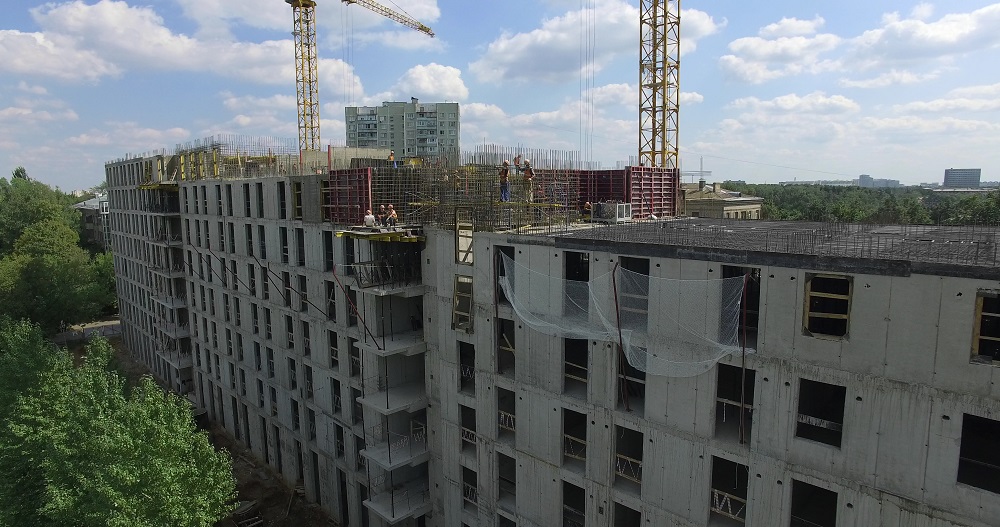
The zoning and building permit approvals process can seem daunting, but it can be much easier to understand with a bit of knowledge. Here is an outline of the zoning and building permit approval process, and know what to expect when you go through it.
Acquiring the approval of zoning and building permits can be made easy and hassle-free with Arentz General Contracting. Project managers and clients enjoy working with us because of various factors, the most important being Arentz General Contracting is a one-stop shop. This entails streamlining the process for project managers and clients by including services for zoning and building permit approvals. As a result, project managers will be better equipped to optimize the process and reduce the likelihood of unwanted delays and complexities happening.
Do contact us about the zoning or building permit approvals process. We are ready to help you through it.
Zoning and Building Permits Explained

Zoning
Zoning is a state-given authority granted to towns to promote public health, safety, and general welfare, and protect and preserve areas of historical, cultural, or architectural interest.
The zoning map separates land inside the city into distinct districts in which some uses are authorized, forbidden, or permitted with conditions. Zoning Districts are created to encourage compatible land use patterns inside the city borders. Each district also has site development rules to ensure that each region of the city has a consistent and compatible development pattern.
Additionally, the Zoning Ordinance includes regulations for off-street parking, signage, and aesthetic appropriateness within historic districts.
Zoning regulations are intended to maintain community order, safety, and attractiveness while minimizing landowner disputes. For example, zoning stops a hospital from developing next to a city waste, or a beet farm from running through downtown.
Before adopting zoning ordinances, most communities limited construction through nuisance laws. If a person did not like how his neighbor utilized the property, he might take him to court, and a judge would determine the matter.
By the 20th century, the process had become very time-consuming. A lot of court cases slowed it down. Instead of reacting to existing problems, communities decided to write zoning laws so that they wouldn’t have to fight with each other in court. Many people agreed that factories and warehouses could not move into commercial areas or that buildings could not be so tall they blocked the sun from all nearby buildings. There was no debate about these rules. Contractors knew that existing zoning laws would be stringent when they started building.
Zoning laws make it easier to decide court matters. For example, zoning clarifies whether a defendant has the right to use a property in a specific way.
Zoning regulations can and do change over time. For example, suppose zoning laws grow more restricted. In that case, persons who held the property before states adopted the stricter laws are often “grandfathered in,” meaning they can continue to use the land as they did before the changes were implemented.
There are around nine types of zoning laws:
1. Residential: apartment buildings, duplexes, suburban homesteads, trailer parks, co-ops, and condominiums. Residential zoning addresses concerns such as the number of structures built on the land.
2. Commercial: shopping centers, nightclubs, office buildings, hotels, warehouses, and some apartment complexes.
3. Industrial: manufacturing plants and storage facilities.
4. Agricultural: particularly farms and ranches.
5. Rural: farms, ranches, and residences zoned to allow horses or cattle.
6. Aesthetic: color schemes, fences, solar panels, satellite dishes, decks, landscaping, and other visual issues.
7. Permitted and accessory uses: exceptions within particular zoning categories. For example, a small hotel not zoned for a restaurant may be permitted to have one connected as an accessory.
8. Combination: combines any number of zoning designations.
9. Historic: referring to buildings and homes over 50 years old.
Building Permits
A building permit is a written document of authorization provided by a local government when an individual or firm wishes to construct a new structure or commence work on an existing structure for expansion or repair. A building permit may also be mandatory when moving, dismantling, or converting a facility.
When applying for a building permit, the corresponding local government agency evaluates the application to ensure that the planned alterations are per all local zoning laws, land use regulations, and construction codes. While each municipality has its own rules, the government agency will generally ensure that the proposed development does not interfere with:
- Structural integrity
- Fire resistance
- Proper exiting
- Health concerns
- Water and sewer lines
- Extension of electrical service
- Industrial waste
The applicant may also need permission for other construction areas, such as electrical, mechanical, plumbing, concrete, or development.
Zoning and Building Permit Approval Process
1. Zoning Permit Application
The first step in the process is to apply for a zoning permit. This application must include detailed information about your project, including what you plan to build and where. You will also need to include drawings of your proposed project and a site plan that shows your property’s zoning district and any applicable zoning regulations.
2. Inspection
After your application is passed, it will go to a zoning administrator. This administrator will determine whether your project complies with zoning regulations. If it is, your application will be approved. If it is not, the administrator will work with you to make changes that bring your project into compliance.
3. Building Permit Application
If your project is approved, you will need to obtain a building permit. This permit must be in place before any construction can take place. The building permit application must include detailed drawings of your project and a site plan that shows your property’s zoning district and any applicable zoning regulations.
4. “As-Built” Application
The final step in the zoning and building permit approvals process is to build your project. Once construction is finished, you will need to submit an “as-built” application to the zoning administrator.
Frequently Asked Questions:
-
How Does One Obtain Commercial Building Permits?
A signed Application and a Complete Application Checklist must be supplied for all permit types. Each state has its own set of rules. The Complete Application Checklists will reveal all of the supporting papers and outside approvals required for each permit type. If an applicant lacks all required supporting documents and outside permissions, Development Services may accept incomplete applications; however, applicants must realize that permits will not be provided until all required information is presented, reviewed, and approved by the city.
-
Why The Need For A Building Permit?
Getting a building permit safeguards you, your family, friends, and future owners from the dangers of unsafe construction. It also protects your investment because many insurers will not pay claims on construction conducted without a building permit, required inspections, and a certificate of occupancy. Furthermore, many lenders will not accept non-permitted square footage or upgrades, lowering the estimated value of your home.
-
Who Has Authority To Decide On Zoning?
Because there is no federal agency in charge of zoning, who controls the zoning in your area is nearly entirely determined by where you reside. In certain circumstances, it is controlled at the county level, while in others, it is governed at the municipal level. Zoning is sometimes decided by a zoning office and occasionally by a land-use office.
Hassle-free Zoning and Building Permit Approvals

The zoning and building permit approvals process may appear complex, but with a bit of knowledge and the help of an expert, it can be a lot easier to grasp.
Many project managers and clients have appreciated working with Arentz General Contracting for zoning and building permit approvals. This is due to the company’s efforts to streamline the process for project managers and clients. As a result, Arentz General Contracting optimizes the process on behalf of its clients, reducing the likelihood of unwelcome delays and complications.
Arentz General Contracting Also Offers
Preliminary Plans and Budget Costs
We also take the burden of putting up preliminary plans and determining budget costs at Arentz General Contracting. This type of service will assist the client in determining how long the project will take, what equipment they can use, what hazards exist, how the site will appear, and how much budget forecasts will be.
Call Arentz General Contracting Now at 912-547-4300!
Arentz General Contracting
5859 Abercorn St, Savannah, GA 31405
912-547-4300
